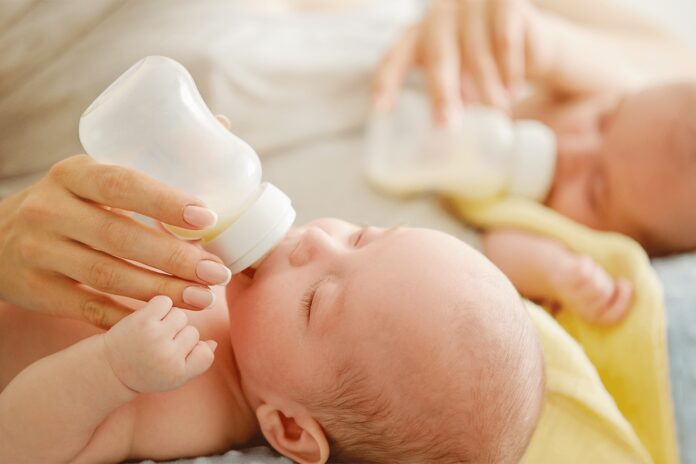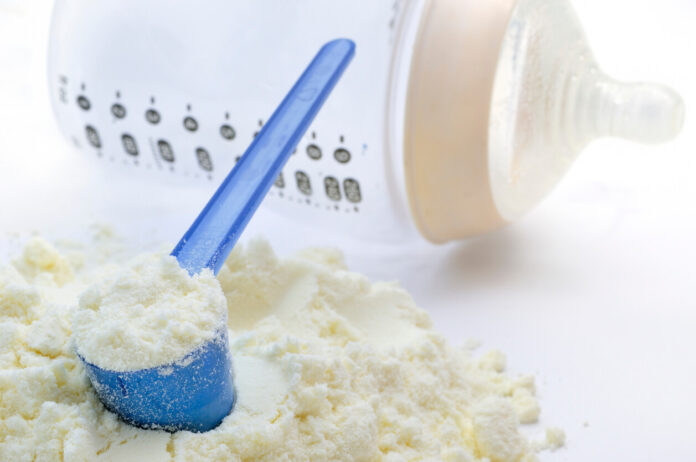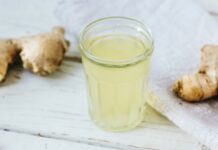
Formula milk, also known as baby formula, formula feed, or infant formula, is made from cow’s milk, which is changed to make it suitable for your baby.
Extra nutrients such as minerals and vitamins are added to help your baby grow and develop.
But, Is formula bad for babies? Well, this has always been a topic of debate.
While Undoubtedly, Breast milk is the best and most natural food for your baby, studies suggest that formula feed might not be very harmful too.
The World Health Organization (WHO) recommends “exclusive breastfeeding for the first 6 months for an infant. But, Breastfeeding is considered very hard. Many new parents have trouble producing enough milk for their infants due to breast hypoplasia (a condition that causes low or no breast milk production) or don’t have the proper support to help them breastfeed. For all these reasons and more, baby formulas can be a useful solution.
The truth behind Baby Formulas

Despite what the advertising may lead you to believe, the formula cannot replace breast milk. Over the past few decades, numerous studies have shown that breastfeeding has numerous advantages for both mother and child. Breastfeeding lowers a child’s chance of developing several diseases, such as type 1 and type 2 diabetes, obesity, asthma, and sudden infant death syndrome. Additionally, moms who do not breastfeed their children have a higher risk of type 2 diabetes, breast cancer, and ovarian cancer. In addition, families who use formula spend hundreds of dollars on a subpar privatized product rather than one that the body naturally provides.
The WHO estimates that 1.5 million fewer children under the age of five would die each year if 100% children in the world were exclusively breastfed for the first six months of life, as opposed to the current 35%. Additionally, there are several sustainability concerns with a formula such as-
- The usage of plastic bottles
- The exposure of infants to toxins like BPA
- The enormous amount of energy required to produce, ship and manufacture Formulas.
Breastfeeding vs. Baby Formulas-
Mother’s milk is an excellent source of nutrition that formula milk can’t duplicate. However, Formula milk contains additives like vegetable oils, vitamins, and minerals to ensure that the formula contains the nutrients that babies need.
However, there is a great concern about the consequences for parents who formula-feed their infants. It is important that mothers and the physicians who advise them make informed choices about what to feed their infants.
The Risks of Formula Feeding: Know the Facts!

If you choose to formula feed, YOUR BABY has a HIGHER RISK of:
Gastrointestinal Infections: Multiple studies suggest that infants face an increased risk of gastroenteritis and diarrhea. Unfortunately, some cow’s milk-based formulas may cause necrotizing enterocolitis (NEC). NEC is a life-threatening gastrointestinal disease in premature and low birth weight newborns.
There have been instances when the hospital fed your premature baby Enfamil formula or other formula products, after which they developed NEC? In the United States, it is observed that many parents file Enfamil Formula Lawsuit claims for their infant baby. According to Chicago-based renowned firm rosenfeldinjurylawyers.com, several Similac and Enfamil lawsuits are filed annually, and the cases have been rising continuously.
Speedy Growth: According to researchers, formula-fed babies grow perhaps too quickly, linked, in part, to excess protein.
High Risk of Chronic Diseases: Studies show that formula-fed babies might be at elevated risks of childhood obesity, type 1 and type 2 diabetes, leukemia, and sudden infant death syndrome.
Lower Respiratory Tract Infection: Infants not breastfed faced a 3.6-fold increased risk of hospitalization for lower respiratory tract infection in the first year of life.
Infant Mortality: Formula feeding is associated with a 1.3-fold higher risk of infant mortality in the United States than Breastfeeding.
Neurodevelopment: Several researchers have looked at the connections between newborn nutrition and cognitive development. According to some studies, children who were fed baby formula had somewhat lower IQ scores than those breastfed.
Dental issues: Formula-fed children are more likely to develop dental malocclusions, including overbite and crossbite issues.
Risks to mothers
Type 2 diabetes: Compared to women who don’t have children, mothers who give birth but don’t breastfeed their newborns have a much higher likelihood of developing type 2 diabetes.
Obesity and overweight: Women who breastfeed their babies in the formula have a higher chance of maintaining their pregnancy weight after giving birth.
Osteoporosis: Postmenopausal formula-feeding women are more likely to suffer from hip fractures and other osteoporosis-related issues.
Breast, ovarian, and uterine cancer: Women who formula-feed their children have a higher chance of getting breast, ovarian, and uterine cancer in later life.
Challenges to Formula-Feeding

Lack of antibodies: Formula can’t provide a baby with the added protection against infection and illness that breast milk does.
It can’t match the complexity of breast milk: Manufactured formulas cannot match breast milk’s complexity, which changes as the baby’s needs change.
Planning and organization: Unlike breast milk, which is always available, unlimited, and served at the right temperature, formula feeding your baby requires planning. Always have the necessary supplies (like bottles and nipples) clean, easily accessible, and ready to use.
Expense: A formula can be expensive. Powdered formula is the least costly, followed by concentrated, with ready-to-feed being the most expensive.
Advantages of Formula-Feeding:
Even after the elevated risks and challenges involved, Formula-Feeding is also convenient in many ways like-
Convenience: Either parent can feed the baby a bottle at any time. That doesn’t put the entire load on a woman.
Flexibility: Once the bottles are made, a formula-feeding mother can leave her baby with any responsible person. Also, she doesn’t need to find a private place to nurse in public.
Time and frequency of feeding: Formula-fed babies usually need to eat less often than breastfed babies because it is less digestible.
Diet. Women who opt to formula feed don’t have to worry about their diet, as it doesn’t affect the child.

Making a Choice
Deciding how you want to feed your baby can be a hard decision. You’ll only know the right choice when your baby comes.
Many women decide on one method before birth and change their minds after the baby is born. And many women decide to breastfeed and supplement with formula because they find that is the best choice for their lifestyle.
While you’re weighing the pros and cons, talk to your lactation consultant or doctor. These health care providers can give you more information about your options to help you make the best decision for your family.











